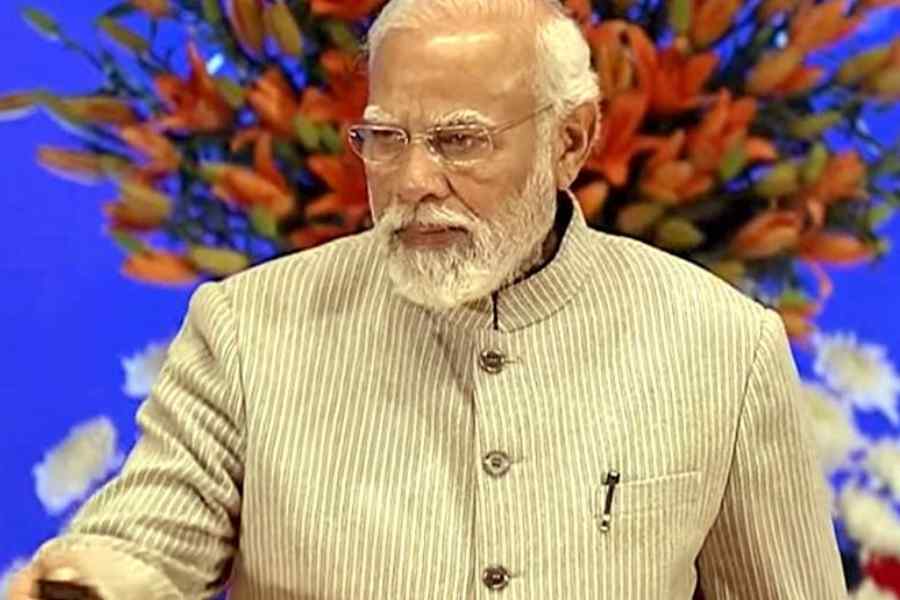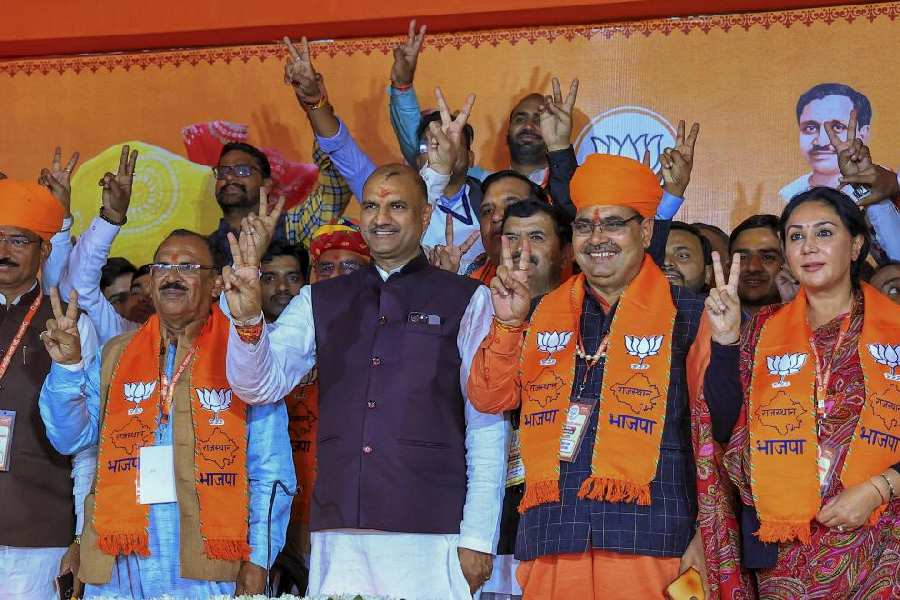Overriding the feisty former chief minister Vasundhara Raje Scindia, first-time MLA Bhajanlal Sharma was picked to become the next chief minister of Rajasthan on Tuesday, in a manoeuvre marking the complete sway of the Narendra Modi-Amit Shah duo over the party and the government.
In one sweep after the victory in three states, Modi and Shah have struck out the last of the old guard from the Atal-Advani era — Raman Singh in Chhattisgarh, Shivraj Singh Chouhan in Madhya Pradesh, and now Vasundhara in Rajasthan. All the three leaders had for years been equally popular chief ministerial colleagues of Modi, who then ruled Gujarat.
Vasundhara, the first woman chief minister of Rajasthan and who had held complete sway over the state BJP for over two decades, was made to announce her own exit as she proposed Sharma’s name at the closed-door Jaipur meeting of the 115 BJP MLAs. Insiders said that at the meet, she was handed over a folded piece of paper by Rajnath Singh that had the name of Sharma as the choice of the top leadership. The defence minister was the lead central party observer to oversee the election of the new chief minister-designate.
As BJP president before the arrival of Modi, Rajnath is said to have failed to rein in the aggressive Vasundhara. The same Vasundhara, now 73, looked helpless on Tuesday as she unfolded the paper and proposed the name of Sharma. Rajnath claimed the election of Sharma was “unanimous” and said all the MLAs backed his choice in one voice.
“I am sure Rajasthan will progress rapidly under the leadership of Bhajanlal Sharma,” Rajnath added.
The choice of first-timer Sharma was on expected lines, given what had happened in Chhattisgarh and Madhya Pradesh. In all the three states, the BJP win was projected as a victory of ‘Modi’s guarantee” and not any state satrap, and low-profile MLAs have been picked to head the governments.
In essence, the choice of all the so-called “next generation” leaders in the three states, including the deputy chief ministers, shows they will function as “loyal soldiers of Modi-Shah”, BJP managers said. “Modi ji has put an end to the reign of entrenched leaders in all these states,” one BJP leader said.
After a tribal in Chhattisgarh, an OBC in Madhya Pradesh, Sharma was an upper-caste Brahmin. Party leaders said that the choice has been carefully to address the caste and class matrix eyeing the general elections next year. The upper castes have been loyal supporters of the BJP and the party didn’t want to annoy them with excessive outreach to the deprived sections.
Sharma, 56, who has no administrative experience but has managed party affairs for over two decades in different capacities, was hailed as a good organisational leader. Like Mohan Yadav in Madhya Pradesh, he is said to have been deeply associated with the RSS before coming to the BJP.
“Under the leadership of PM Modiji, this Rajasthan team will carry out all-round development,” Sharma said after his election.
Two deputy chief ministers were also announced in Rajasthan, as in the other two states. One of them was Diya Kumari, a Thakur belonging to an erstwhile royal family who was being seen as a top contender for chief minister. Among the group of MPs sent to contest state elections, she was hoping that Modi would pick her to underline his commitment to “naari shakti” (woman power). The second deputy chief minister was a Dalit, Premchand Bairwa.
Vasundhara
Although Vasundhara refrained from showing in public that she was upset, sources close to her indicated that she could do so in the near future. The sources said that she would like to become the party chief of Rajasthan but that wish might not be granted. Like Chouhan, she could be asked to move out of the state to Delhi, sources said, an offer she is learnt to have rejected in the past.












